
CITRIS and the Banatao Institute at UC Santa Cruz have announced the winning projects for their second annual Campus Seed Funding Program. This year’s call for proposals focussed on work that explores solutions to challenges caused by the current COVID-19 Pandemic and other potential disasters. The three funded projects are:
-
Professor Sri Kurniawan, Computational Media, and Professor Nancy Chen, Anthropology – Interactive Virtual Platform for Intergenerational Wellbeing of Essential Worker Communities in a Medical Desert: Promoting Health Equity During and After Pandemic
-
Professor Ahmet Yanik, Electrical and Computer Engineering, and Professor Rebecca DuBois, Biomolecular Engineering – Development of Open Source Robotic Platforms for Ultrasensitive, High-Throughput and Low-Cost Testing of SARS-CoV-2 Viral Load
-
Professor David Lee, Computational Media – Towards High-Quality Digitally-Supported Experiential Education via Micro-Role Hierarchies
“We were excited to see the diverse and creative range of projects this year, from work addressing educational challenges, to health and community issues.” said CITRIS UCSC Campus Director, Professor J.J. Garcia-Luna-Acevez. “The three finalists chosen by the review committee all hold great promise to help us deal with the new reality this global pandemic has brought and prepare more effectively for any similar future crises.”
The CITRIS UCSC Campus Seed Funding program provides funding up to $40,000 for individual projects that use information technology to solve a significant social challenge. Normally, applicants are encouraged to form teams involving researchers from at least two separate campus divisions (Arts, Humanities, Social Sciences, Physical and Biological Sciences and Engineering), but that requirement was lessened this year to encourage a quick response and a broader range of projects in the face of the current pandemic.
The Center of Information Technology Research in the Interest of Society or CITRIS for short, is a multi-campus initiative focused on research and emerging technologies. Established in 2001, CITRIS and the Banatao Institute leverages the interdisciplinary research strengths of UC Santa Cruz, Berkeley, Davis and Merced to advance the University of California’s mission. The institute was created to shorten the pipeline between world-class laboratory research and the development of impact applications, platforms, companies, and new industries. Together with many public and private partners, the institute is shaping the future of technology in ways that cross traditional boundaries.
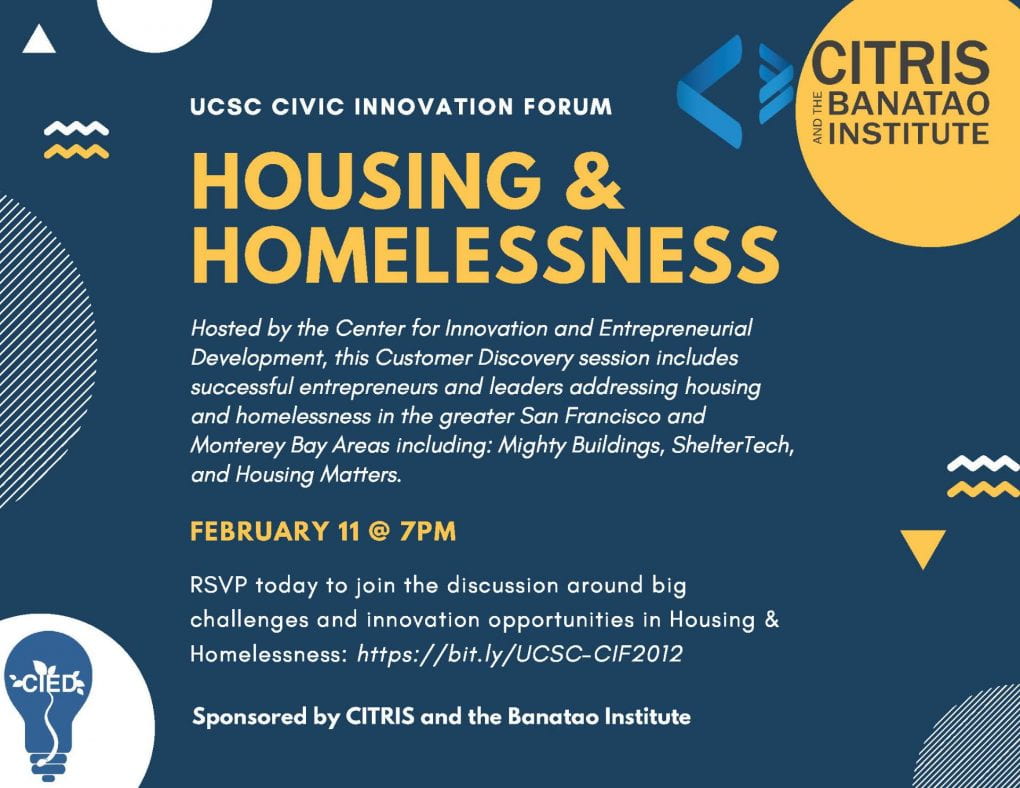
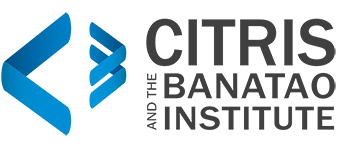
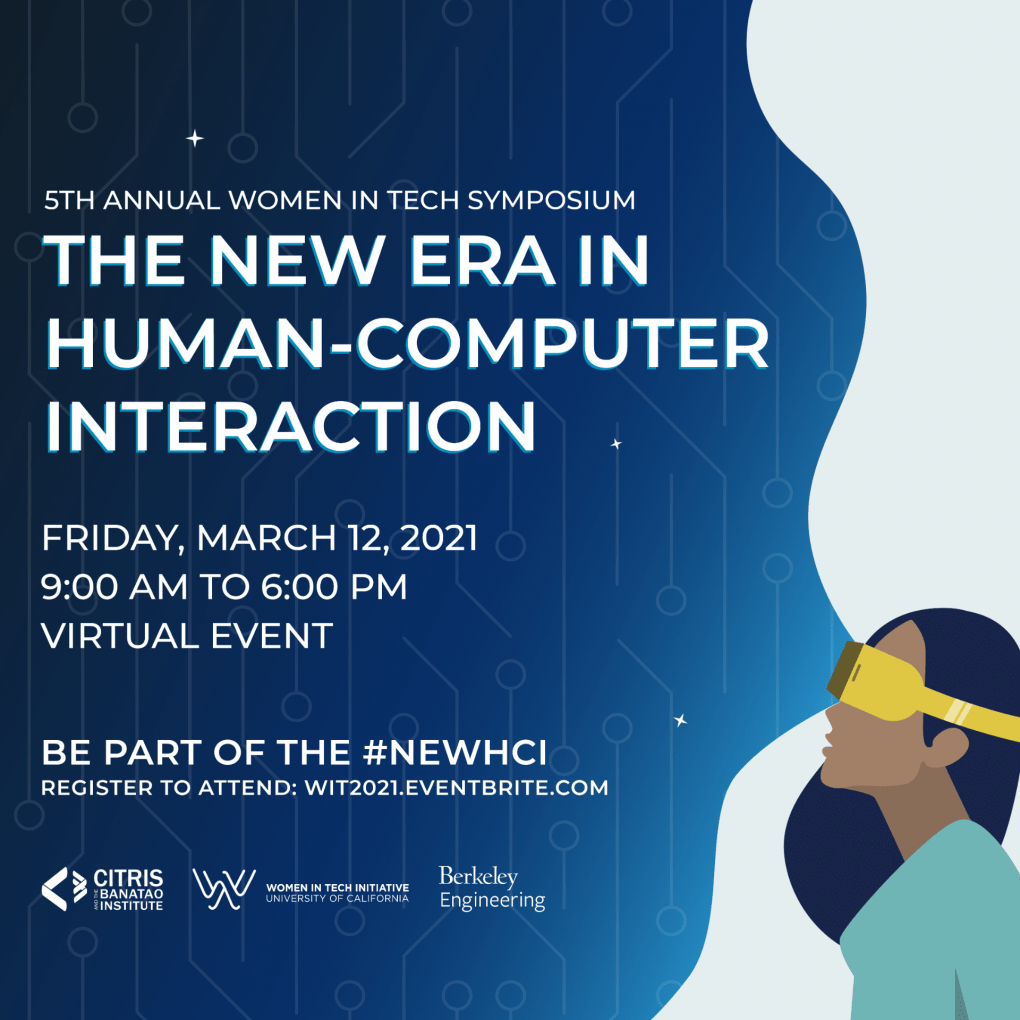


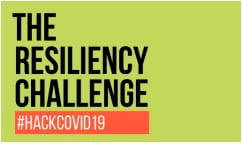

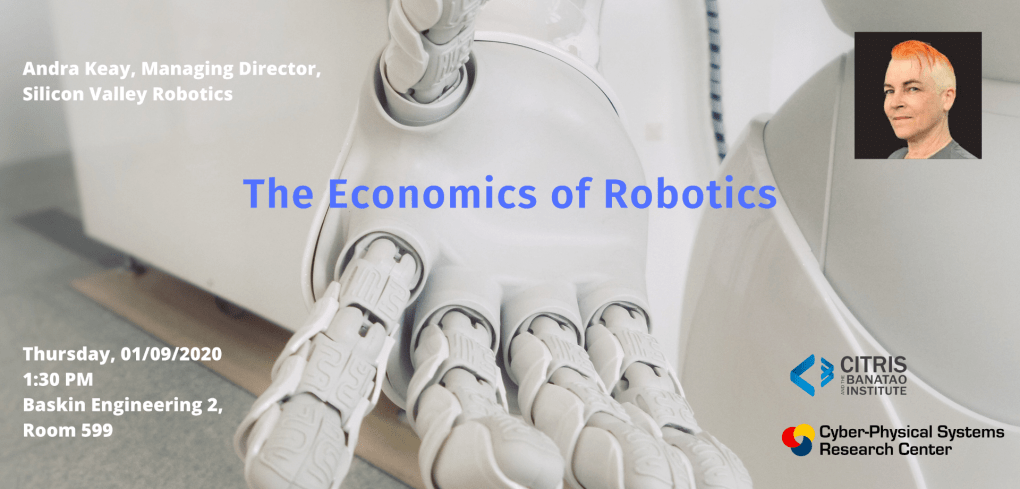
 Due to demand we have added three more Tech for Social Good Program student info and matchmaking sessions at the following campus locations and dates:
Due to demand we have added three more Tech for Social Good Program student info and matchmaking sessions at the following campus locations and dates: